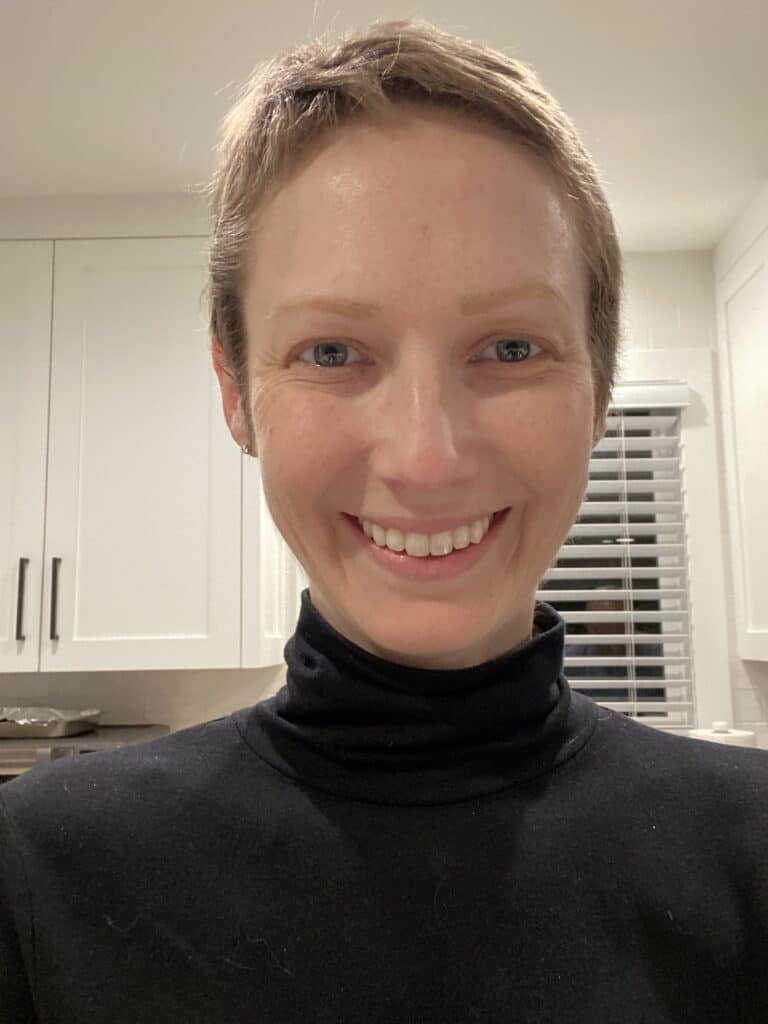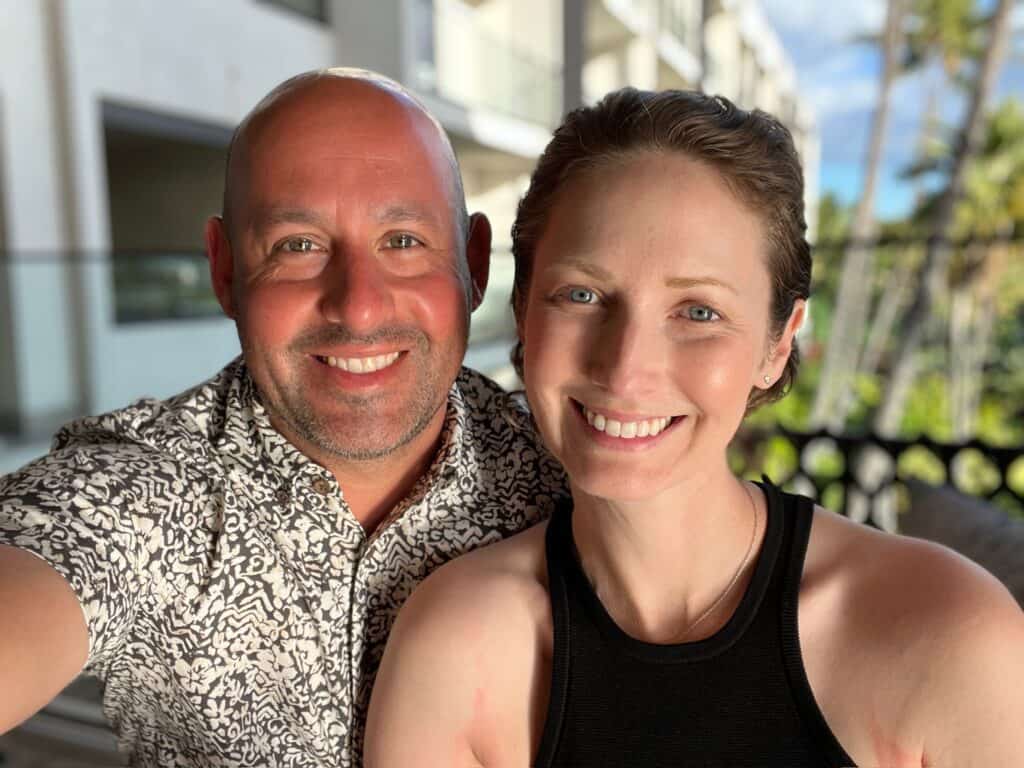
Just before her 38th birthday, Lauren Yerkes learned she had breast cancer. Genetic testing would reveal she had the BRCA2 inherited gene mutation that made her at higher risk of developing breast and ovarian cancers. “My experience has made me want to educate people about inherited BRCA mutations and to push for genetic testing, because people don’t really talk about it,” Lauren said. “I had no idea I was at risk.”
Several months before her breast cancer diagnosis, Lauren felt a lump in her breast. She immediately went to the doctor, but because she wasn’t yet 40, they didn’t think it was anything, however her doctor went ahead and set up a mammogram and sonogram, just to be sure.
“They didn’t find anything,” Lauren said. “They said to come back if anything changed or once I turned 40.”
Then, about two weeks before her diagnosis, Lauren woke up one morning and noticed yellow stains on her shirt. Later, she realized it was discharge coming out of her nipple. Lauren went back to the doctor, who sent her for another ultrasound and then a biopsy.
“I was at home when I got the phone call. I remember the first thing they said – are you sitting down or driving? And I thought oh no,” she recalled. “I heard the radiologist say, ‘you have breast cancer.’ He said invasive ductal carcinoma and it didn’t really register what that meant. Then I realized carcinoma means cancer. My first reaction after that was, I’m going to die. My connection to cancer at that point is what I’d seen on TV or in the movies.”
Lauren’s diagnosis was stage 2 triple negative invasive ductal carcinoma. It was three days before her 38th birthday. “I realized later it’s not a death sentence and that gave me hope, but at that moment, all I could think was the worst.”
Lauren had already started chemotherapy when genetic testing revealed she had the BRCA2 gene mutation, which led her to deciding on a bilateral mastectomy with reconstructive surgery. “My breast surgeon was the first person to ask me anything about genetics. She said she wanted to test me based on my background, on the fact that I am an Ashkenazi Jew. Even though I was raised Jewish, it didn’t register to me what that meant,” Lauren said.
The BRCA2 inherited gene mutation increases a risk of breast cancer among Ashkenazi Jewish women and men; about 1 in 40 have a BRCA1 or BRCA2 inherited gene mutation. Lauren’s gene mutation put her at a higher risk of developing ovarian cancer, as well as other types of cancer.
“I think learning I had a BRCA2 mutation helped give a reason as to why I got cancer, especially considering my age. It gave me a reason as to why this was happening,” she said. “It showed there was nothing I could control because I can’t control my genes. In the beginning, I was upset – why did I get this and why didn’t anyone tell me about risk before? I wish I had known I had a genetic mutation, so I could have potentially gotten ahead of the surgeries.”
Lauren’s chemotherapy treatment proved to be difficult. She was originally supposed to have a total of 16 rounds, but ultimately only had 14 rounds. During round 12, she started vomiting. “I’d dealt with nausea, but never that,” she said. “It was 5, 6, 7 times a day. I couldn’t keep anything down.” Two weeks after treatment passed and she still couldn’t keep anything down. She lost 35 pounds. Her doctor sent her to a gastroenterologist for an endoscopy, which showed ulcers in Lauren’s esophagus and stomach. She ended up getting a feeding tube, which she had for three months.
“My husband and I celebrated our 10th anniversary on the day I got my feeding tube,” she said. “During treatment, somebody told me ‘you’ll get your life back’ and I held on to that every day because treatment was really hard for me.”
During this time, a friend of the family who is a therapist gave Lauren coping techniques to use. “Whenever I was overwhelmed or at a breaking point, I’d sit and tell myself I’m sitting in a chair and I’m breathing, and it calms me down,” Lauren said. “I still use those techniques even now.”
Lauren’s husband helped her stay the course during treatment. “There were days when he’d say, okay, you’re going to take a walk today, even if it’s just around the block, or okay, I need you to fold laundry today. He gave me something to focus on other than just sitting and dwelling on what I was going through,” she said. “He was amazing.”

Because a mutation in the BRCA2 gene is inherited, several of Lauren’s family members also had genetic testing after she received her results, including her sister, maternal grandmother and mother. While her sister and grandmother did not test positive, Lauren’s mother did, and she chose to have a preventive hysterectomy and double mastectomy. One of her mother’s brothers also tested positive for the BRCA2 gene mutation and will now have screenings for breast cancer and prostate cancer. Additionally, his two young daughters will be tested in the coming years.
This past December, Lauren also had a preventive hysterectomy. “This reduces my chance of getting ovarian cancer, and I want to do whatever I can to prevent cancer from being a part of my life. What can I do so I’m not going to get cancer again,” she said. “I tell people if you are given the opportunity and you have the means to get genetic testing, do it. You want to take control of your health and the next steps.”
Read about family history risk factors and learn about your risk of breast cancer.



